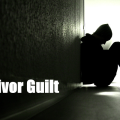
Throughout my life, I’ve been defined as a daughter, a sister, a wife, a friend – and today, a survivor of suicide. The latter is one descriptor I never even knew existed, let alone thought I’d take on until two years ago. In the wee hours following my father’s death in August 2011, unable to sleep, I took to my computer, looking for support, for answers. While the city and world around me was resting quietly, I was grasping for anything that would help me make sense of what happened. How could I go on? How could I even begin to prepare to return to my job in the allotted five days of bereavement after losing my dad to suicide? Among the articles, book reviews and other resources I found, I was taken aback to find that a support group existed in Chicago specifically for those who lost a loved one this way. The page read:
“Loving Outreach to Survivors of Suicide (LOSS) is a free, non-denominational program that supports individuals who are grieving the loss of a loved one by suicide. The LOSS Program is offered by Catholic Charities of the Archdiocese of Chicago.”
I took a moment to digest the words I was reading on my screen and thought, am I a survivor of suicide? There’s actually someone out there who wants to help survivors of suicide? I jotted down the organization’s telephone number and placed a teary phone call the moment they opened to request participation in their services. This would turn out to be one of the best decisions I made in the aftermath of my loss.
The Oxford Dictionary defines a survivor as “a person who survives, especially someone remaining alive after an event in which others have died; a person who copes well with difficulties in their life.” I entered the room at my first LOSS meeting as that person who simply remained alive after an event. A terrible, terrible event. An auto-pilot shell of myself was still alive and had to learn how to not only digest this loss but also continue on in society and in my job. Something that surprised me was how many LOSS participants were attending meetings 5-10 years after losing their loved one. In these people, I saw and felt great inspiration and comfort. Somehow, they made it through those painful steps back into everyday life that I was about to endure. In fact, they were even smiling and laughed a couple of times during the meetings. They had utter compassion and empathy for me at my early stage of grief and shock. These were survivors who took on that additional definition of the word, seemingly able to cope well with difficulty of losing someone to suicide.
Survivors have endured one of the most senseless and devastating events that can ever happen. Yet, through this tragedy, a stronger, more humble and empathetic person can emerge. This is the proud survivor of suicide that I consider myself today, though it certainly took time. In looking back, I would say I owe my personal growth over these two years to the “survivor of suicide emergency kit” I built for myself after my dad’s death.
Aside from ongoing LOSS meetings and lengthy conversations with Jessica and Lindsay about our similar situations, I dove into books on the topic and sought personal grief counseling. I also did a lot of journaling and soul searching. I feel I am continually working to rebuild myself with the help of these tools. And, through this, I have begun to take life a little less seriously. I try not to get short-tempered with people because you never know what they might be going through. I now know that sometimes, the best thing you can do for another person who has experienced a death is to be there for them and listen – no matter how much time has passed. I have also challenged myself to take more risks and avoid settling – like pushing myself to consider a higher position at a new company, learning a foreign language, or taking on a new hobby. When people casually suggest getting together, I immediately check my calendar and follow-up with a date.
I have a stronger appreciation for the fact that life is too short and too precious to wait. I guess you could say that I am coping well now. Some days are better than others, but life can go on again. I’ll always carry forward a piece of my dad in me – I want to be able to help others (as he liked to) as they explore what it’s like to be a survivor. I know this is the definition of survivor my dad would have wanted me to be.




[…] Day is also a time to celebrate ourselves as survivors. I recently wrote about What it Means to Be a Survivor of Suicide. In the post, I said, “Survivors have endured one of the most senseless and devastating […]